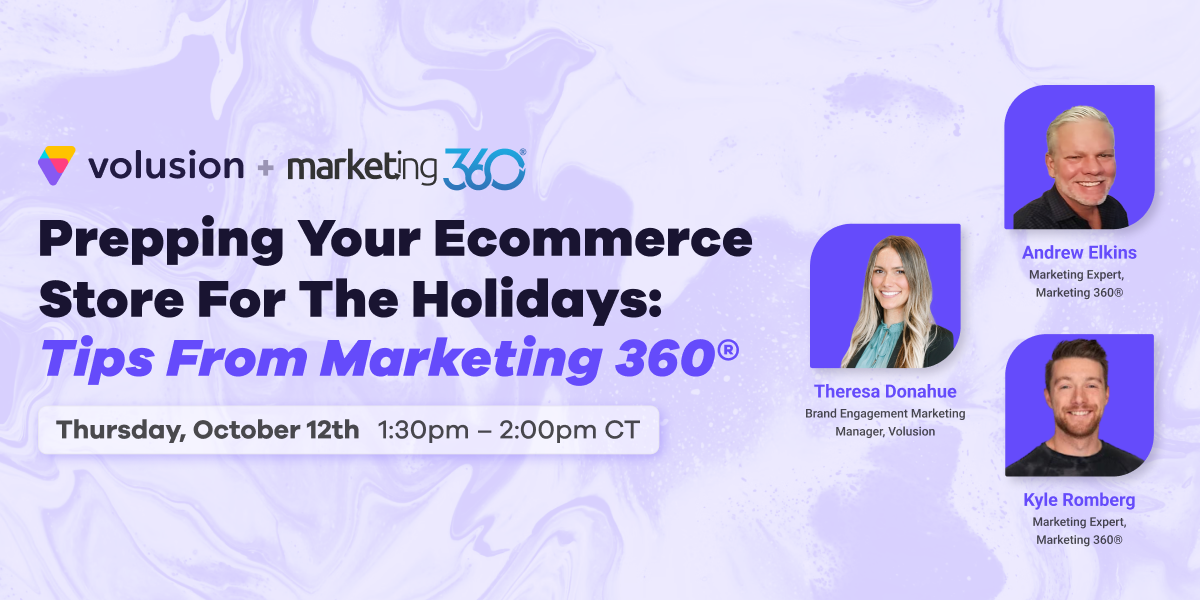
Friday the 13th is usually a day of superstitions, eerie sensations, and unexplainable occurrences. But when you're doing your own SEO, those feelings can sound all too familiar year-round. From sudden rank changes to mysterious algorithm updates, SEO can be pretty frightening at times.
Luckily (or unluckily), search engines are quick to pick up on the latest SEO ploys and start demoting websites left and right. So in honor of Friday the 13th, let's ward off any bad luck by learning about some of the most common SEO pitfalls.
Here are 13 SEO mistakes you should avoid at all costs:
1. Don’t use rankings as the sole indicator of SEO success
Exclusively relying on rankings to gauge your SEO campaign's success can be very misleading. Not only are search results becoming more personalized, but Google also uses over 200 unique signals in their algorithm to rank sites and make regular updates. Altogether, these factors make focusing solely on your site's ranking both scarily subjective and frighteningly fickle.
So how do you get a whole picture of your SEO's success? By looking at your ranking in conjunction with other helpful metrics.
Here are some metrics that can help you gauge your SEO progress:
- Organic traffic: Specifically, you'll want to measure non-paid traffic increases and decreases from major search engines.
- Organic revenue: This is revenue generated on your online store as a result of a non-branded visit. (A non-branded visit is someone reaching your site via a specific keyword rather than by searching for your company name.)
- Multi-Channel Funnels: This philosophy helps you better understand the buying process. You can use this feature to help determine how users interact with search engines before making a purchase. For example, some visitors may find your site using Google, leave your site to shop the competition, and later return to make a purchase.
- Traffic sources: You'll want to determine which sites are sending you the most traffic, and which sites are sending you the most visitors that convert into sales.
2. Don’t rely on one traffic source
Depending on only one traffic source and thinking it'll help your SEO is about as advisable as walking under a ladder and hoping for good luck. It's not impossible, but it's a pretty bad bet.
Instead, you'll want to diversify your traffic sources. Channels like social media, industry directories, and advertising sources such as AdWords can be great sources of targeted traffic. Once you start incorporating different traffic sources into your marketing efforts, don't forget to track which sources are leading to the most traffic and sales.
3. Don’t over-optimize your incoming links with keyword rich anchor text
Too much of a good thing can be a bad thing, especially when it comes to optimizing anchor text that leads to your site. You want to introduce variety into your linking strategy, especially in press releases. For example, if you sell online DVDs and have five sites linking to you, you wouldn't want all five links to say “Buy Online DVDs.” This may violate Google's Webmaster Guidelines and won't win you any favors in terms of SEO.
4. Don’t run a site without engaging content
Whether it's interesting copy, useful videos, stunning photos(don’t forget the Alt attribute tag on those), podcasts, or other rich media, interesting content encourages visitors to stick around longer. Not only that, but it increases the chances they'll reference your site, link to your content, and trust your brand.
In addition, great content helps capture “informational searchers,” meaning people who are looking for information rather than trying to make a purchase. When you have high-quality, engaging content for them to consume, your business is seen as a subject matter expert.
5. Don’t have duplicate content
Google isn't a fan of seeing the same thing twice (or really, anytime more than once). So make sure there aren't any content twins, triplets, quintuplets, or more hiding around your website. This includes, but isn't limited to, having duplicate web copy, title tags, meta descriptions, and URLs.
To find duplicate content, look at your Google Webmaster Tools account and go to Search Appearance > HTML improvements. Adding a canonical meta tag can also help solve duplicate content and URL issues.
6. Don’t ignore Google Analytics
Google Analytics is one of the most effective tools when gauging the performance of your SEO campaign. In addition to all the basic metrics it provides, it also has ecommerce tracking scripts that allow store owners to measure the amount of revenue being generated from organic traffic. This is a good way to determine if your organic traffic is converting and can help you optimize pages that need some additional attention.
7. Don’t have your site publicly accessible with unfriendly SEO URLs
Nowadays, search engines don’t pay as much attention to keyword rich URLs as they used to. But these URLs can still help with enhancing the relevance of a page.
If you plan to optimize your URLs, don’t forget to 301 redirect your old URLs to your newly-optimized URLs. (For Volusion store owners, this is actually done automatically.)
8. Don’t ignore Google+ and authorship
It's not news that Google lets Google+ strongly influence search results. Use that to your advantage by building up the credibility of a personal Google+ profile and tying it to your content with Google authorship.
Some of the benefits of Google+ authorship include:
- Helping followers, fans, and potential visitors discover sites where you actively publish content.
- Discovering other authors in your industry for potential networking and business opportunities.
- Developing a broader fan base with the help of using Hashtags on Google+. For example, someone interested in SEO could click on the #seo Hashtag in Google+, and they'd be shown other content tagged #seo.
- Potentially increasing your content’s visibility on Google compared to your competitors. High quality content tied to a credible Google+ account can be given priority by Google, meaning more visibility and potential traffic.
9. Don’t acquire or buy spammy links
Google's spam detection system is only getting better, and the penalties for being associated with a spammy domains are only getting steeper. Sites that link to spam will, at best, perform much worse than they did before, and at worst, completely disappear from Google’s search results.
So what kind of sites should you look for instead when trying to earn links to your domain? Sites with strict editorial guidelines, an accessible way to contact the webmaster, and relevant content to your industry are more than likely great place to reach out to.
10. Don’t target the same keywords on multiple pages
Although keyword research can be tricky, it’s worth targeting different keywords across your website. Using the same keywords on multiple pages can cause internal page competition, and the duplicate content it causes can hurt your website's SEO.
To avoid this mistake, try selecting around three to five unique keywords to optimize for per page. Any more keywords than that, and you risk running into the other mistake of diluting your page's relevance.
11. Never be satisfied with a manufacturer’s product descriptions
Don't settle for a manufacturer's product description when you can write a unique one. For such small things, original product descriptions can really help your online visibility. Not only will they set your products apart from the competition, but they give you an opportunity to use multiple keyword variations as well.
When crafting your unique product descriptions, add useful content, videos, and charts. This additional audio and visual content can further differentiate your business and engage your customers.
12. Don’t have duplicate websites selling the same products
The phrase "the more the merrier" doesn't hold true if we're talking about online stores selling the exact same products. Some webmasters do this to try to build link networks and artificially boost their authority and relevance. But remember all the bad things that can happen if you have duplicate content on your site? Well, if you have several websites selling the same products, you're going to have an even worse time.
The SEO penalties in these cases are dire, and it can take months for your site to recover. Instead, focus on building the SEO value of one store selling a particular set of goods. If you plan to open multiple stores in the future, make sure each store has a unique niche and is selling its own set of unique goods.
13. Don’t forget to revisit your SEO efforts
When it comes to SEO, you got to be in it for the long haul. That means every so often, you'll want to revisit your strategy and see how you can improve to better achieve your SEO goals.
Keep a pulse on your SEO efforts by checking KPIs (Key Performance Indicators) regularly. KPIs can include any goal you would like to accomplish as a result of your SEO efforts. For example, a solid KPI can be to increase revenue from non-branded organic traffic. Using Google Analytics, you can set up reports and alerts for items you would like to track on a regular basis. If you have an SEO team or looking for one, look for transparency in the form of useful performance reports.
Avoid these 13 SEO mistakes, and your store will be on its way to success. In the meantime, it’s time to let the black cat out of the bag and expose other bad SEO tactics. If you know any other scary SEO mistakes that people should be aware, let 'em loose in the comments below.











